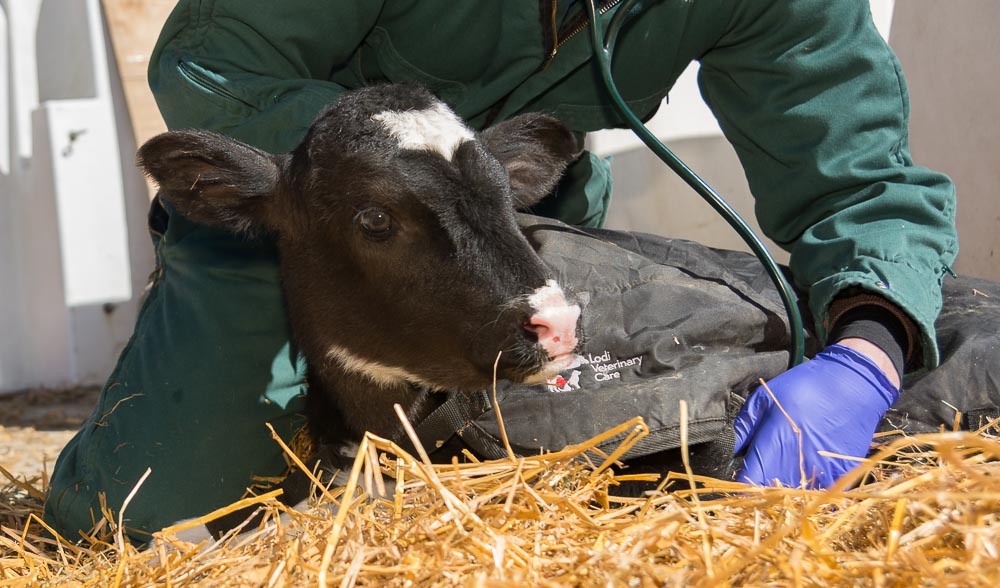Scours, or diarrhea, is a common illness of young calves and one of the leading causes of mortality prior to weaning. Affected calves may suffer from decreased appetite, weakness, and eventual death from dehydration or electrolyte imbalances. Fortunately, scours can often be prevented with good management practices, including proper nutrition, hygiene, and a vaccination program recommended by your veterinarian. For calves that are already sick, early and appropriate treatment is the best way to ensure recovery.
The most important factor in preventing calf death from scours is hydration. Calves should always be given access to clean fresh water. Scouring calves should be offered a balanced oral electrolyte solution either free choice or as a separate feeding from their normal milk or milk replacer. Calves that maintain their appetites will often recover in three to five days without further treatment.
Calves that refuse to drink for two or more consecutive feedings may need to be given oral electrolytes via an esophageal tube feeder. Feeding milk with a tube feeder is not recommended, as it may cause harmful digestive upsets. If calves are too weak to stand or suckle, IV fluids or a plasma transfusion may be necessary. This will likely require veterinary assistance.
The decision to treat a scouring calf with antibiotics is dependent on the severity and symptoms of the disease. Many of the common causes of scours (viruses, parasites, and nutritional changes) will not respond to antibiotic treatments, and most calves recover without treatment after a few days. Reserve antibiotics for calves that have fevers higher than 103° F or show other signs of illness (depression, refusal to eat, coughing, etc.). Consult with your veterinarian to choose the best antibiotic for your animals.

